Usually everyone says that you should first read the book before watching a movie based on it if you don't want to be disappointed. Well, if you watched these movies but didn't read the books first, don't worry, you don't have to as they are better than the books.
Psycho (1960)
Directed by: Alfred Hitchcock
Written by: Joseph Stefano
Based on: Psycho (1959) by Robert Bloch
Why it’s better: The film subverts audience expectations by starting with the story of Marion Crane (Janet Leigh) instead of Norman Bates (Anthony Perkins), making her death a surprise and upping the suspense that has made Psycho a classic. Plus, Norman is a more complex and ultimately sympathetic character in the film.
Dr. Strangelove or: How I Learned to Stop Worrying and Love the Bomb (1964)
Directed by: Stanley Kubrick
Written by: Stanley Kubrick, Terry Southern, and Peter George
Based on: Red Alert (1958) by Peter George
Why it’s better: Stanley Kubrick makes multiple appearances on this list, because his adaptations tended to be distinctive works of art. In this case, he took a straightforward thriller about nuclear war and turned it into a satire that left a much more lasting impression as social commentary.
The Graduate (1967)
Directed by: Mike Nichols
Written by: Calder Willingham and Buck Henry
Based on: The Graduate (1963) by Charles Webb
Why it’s better: While the film doesn’t deviate too much from the novella it’s based on, the casting of Dustin Hoffman as Benjamin Braddock and Anne Bancroft as his seducer Mrs. Robinson — along with the iconic Simon and Garfunkel score — have made it the more definitive version of the story.
A Clockwork Orange (1971)
Directed by: Stanley Kubrick
Written by: Stanley Kubrick
Based on: A Clockwork Orange (1962) by Anthony Burgess
Why it’s better: Again, Kubrick’s unique aesthetic makes this version of the story more effective than the novel. He also wisely adapted the American edition of the book, which scrapped Burgess’s ending of the U.K. version and saw Alex (Malcolm McDowell) find redemption and turn his life around. Kubrick’s darker conclusion just makes more sense.
The Godfather (1972)
Directed by: Francis Ford Coppola
Written by: Mario Puzo and Francis Ford Coppola
Based on: The Godfather (1969) by Mario Puzo
Why it’s better: The Godfather is widely considered to be one of the greatest films of all time. Mario Puzo’s pulpy novel is definitely fun, but Francis Ford Coppola elevated it to a breathtaking cinematic accomplishment. It’s also a more streamlined story, with Puzo’s history of Don Corleone (Marlon Brando) incorporated in The Godfather Part II.
Jaws (1975)
Directed by: Steven Spielberg
Written by: Peter Benchley and Carl Gottlieb
Based on: Jaws (1974) by Peter Benchley
Why it’s better: While the novel Jaws was a fairly standard thriller, the film held back on violence — a serendipitous consequence of a low budget and a malfunctioning mechanical shark. The non-shark characters were also fleshed out and rendered more likable, helping the audience root for them.
One Flew Over the Cuckoo’s Nest (1975)
Directed by: Miloš Forman
Written by: Lawrence Hauben and Bo Goldman
Based on: One Flew Over the Cuckoo’s Nest (1962) by Ken Kesey
Why it’s better: As portrayed by Jack Nicholson, McMurphy is an enduring cinematic antihero. The film shifted perspective from Chief (Will Sampson), who narrates the novel, to McMurphy, thereby making the central conflict between McMurphy and Nurse Ratched (Louise Fletcher) all the more dynamic.
The Shining (1980)
Directed by: Stanley Kubrick
Written by: Stanley Kubrick and Diane Johnson
Based on: The Shining (1977) by Stephen King
Why it’s better: Stephen King was famously unhappy with Kubrick’s adaptation of his novel, largely for the way it diminishes the supernatural elements. But while Jack Torrance (Jack Nicholson) isn’t possessed in the movie, he’s far more frightening than he was in the book, because the horror is more grounded and familiar.
Blade Runner (1982)
Directed by: Ridley Scott
Written by: Hampton Fancher and David Peoples
Based on: Do Androids Dream of Electric Sheep? (1968) by Philip K. Dick
Why it’s better: Blade Runner is a loose adaptation of the Philip K. Dick novel, which is a sci-fi classic in its own right. But the movie works better as a dark vision of humanity’s future, and the ambiguity over whether or not Deckard (Harrison Ford) is a replicant was a smart addition to the film.
Stand By Me (1986)
Directed by: Rob Reiner
Written by: Bruce A. Evans and Raynold Gideon
Based on: The Body (1982) by Stephen King
Why it’s better: Another Stephen King adaptation, Stand By Me isn’t vastly different from The Body, a novella originally included in the King collection Different Seasons. But director Rob Reiner better captured the bittersweet childhood nostalgia and dark humor of the story, making the movie a beloved classic.
The Princess Bride (1987)
Directed by: Rob Reiner
Written by: William Goldman
Based on: The Princess Bride (1973) by William Goldman
Why it’s better: Another cherished adaptation from Reiner. It helps that William Goldman adapted his own novel — the subversive humor and genuine charm are largely the same, but the movie does such an impressive job of capturing the magic that it ends up trumping the source material as a near-perfect fairy-tale adventure.
Die Hard (1988)
Directed by: John McTiernan
Written by: Jeb Stuart and Steven E. de Souza
Based on: Nothing Lasts Forever (1979) by Roderick Thorp
Why it’s better: While Roderick Thorp’s novel was a thriller, Die Hard is unmistakably an action movie — and it’s a classic because it’s such a tight, well-constructed action movie (led by Bruce Willis as Detective John McClane). The influence Die Hard has had on the genre has extended far past that of the book.
Misery (1990)
Directed by: Rob Reiner
Written by: William Goldman
Based on: Misery (1987) by Stephen King
Why it’s better: Reiner proved himself particularly adept at adapting Stephen King, and in this case, he was aided by another excellent William Goldman screenplay. The film version of Misery ditches an excerpt from Paul Sheldon’s (James Caan) romance novel — not a huge loss — and makes the infamous hobbling a much ghastlier affair.
The Silence of the Lambs (1991)
Directed by: Jonathan Demme
Written by: Ted Tally
Based on: The Silence of the Lambs (1988) by Thomas Harris
Why it’s better: The film streamlines the novel, cutting away at extraneous subplots and characters. But that’s standard practice. What makes this such an incredible adaptation is largely the casting of Jodie Foster as Clarice Starling and Anthony Hopkins as Hannibal Lecter: Their chemistry elevates them above their literary counterparts.
The Last of the Mohicans (1992)
Directed by: Michael Mann
Written by: Michael Mann and Christopher Crowe
Based on: The Last of the Mohicans: A Narrative of 1757 (1826) by James Fenimore Cooper
Why it’s better: James Fenimore Cooper’s novel might be an 18th-century classic, but it’s also a total slog. The prose is dense and overly detailed, and the plot moves forward at a glacial pace. The film, on the other hand, is a sumptuous Michael Mann production, and a whole lot easier to get through.
Jurassic Park (1993)
Directed by: Steven Spielberg
Written by: Michael Crichton and David Koepp
Based on: Jurassic Park (1990) by Michael Crichton
Why it’s better: When it came out nearly 25 years ago, Jurassic Park was a huge technological achievement — and it still holds up. It’s hard for the novel to compete with the fully realized, larger-than-life dinosaurs of the film. And as with Jaws, the human characters are better developed and more sympathetic in the movie, which makes viewers way more invested in their survival.
Forrest Gump (1994)
Directed by: Robert Zemeckis
Written by: Eric Roth
Based on: Forrest Gump (1986) by Winston Groom
Why it’s better: As much plot as there is in the movie version of Forrest Gump, the film wisely cut a ton of material from the book, much of which is totally batshit. In the novel, Forrest becomes an astronaut and goes to space, meets an ape named Sue, and crash-lands in the jungle, where he’s nearly eaten by cannibals. Not in the film, thank goodness!
The Shawshank Redemption (1994)
Directed by: Frank Darabont
Written by: Frank Darabont
Based on: Rita Hayworth and Shawshank Redemption by Stephen King
Why it’s better: Sorry, Stephen. Here’s another adaptation — and, like Stand By Me, it’s of a novella from the Different Seasons collection — that adds weight and depth lacking in the source material. The Shawshank Redemption is considered by many to be one of the greatest films of all time, as opposed to the novella, which is one of King’s minor works.
Jumanji (1995)
Directed by: Joe Johnston
Written by: Greg Taylor, Jonathan Hensleigh, and Jim Strain
Based on: Jumanji (1981) by Chris Van Allsburg
Why it’s better: This one’s kind of cheating — Chris Van Allsburg’s Jumanji is a picture book (and a delightful one at that). Still, there’s no denying that the movie does a great job of expanding on the concept of a board game with very real-life consequences.
L.A. Confidential (1997)
Directed by: Curtis Hanson
Written by: Brian Helgeland and Curtis Hanson
Based on: L.A. Confidential (1990) by James Ellroy
Why it’s better: James Ellroy’s novel is a neo-noir classic, but the film adaptation is even more impressive for the way it seamlessly captures 1950s Los Angeles in a manner that feels both classic and entirely of its time.
Starship Troopers (1997)
Directed by: Paul Verhoeven
Written by: Edward Neumeier
Based on: Starship Troopers (1959) by Robert A. Heinlein
Why it’s better: While Robert A. Heinlein’s novel has been debated for its alleged pro-military (and, some would argue, fascistic) agenda, Paul Verhoeven’s film is very clearly a satire. Though it’s wildly misunderstood as time goes on, the biting social commentary of the movie has also become more and more relevant.
Jackie Brown (1997)
Directed by: Quentin Tarantino
Written by: Quentin Tarantino
Based on: Rum Punch (1992) by Elmore Leonard
Why it’s better: In adapting Elmore Leonard’s novel — Quentin Tarantino’s only adaptation to date — the filmmaker made protagonist Jackie Burke a black woman named Jackie Brown, casting Pam Grier in a role that paid homage to her blaxploitation past. What would be a straightforward thriller becomes something distinctively Tarantino with a unique style and endless winks to cinematic history.
Fight Club (1999)
Directed by: David Fincher
Written by: Jim Uhls
Based on: Fight Club (1996) by Chuck Palahniuk
Why it’s better: It largely comes down to the ending, so spoiler alert: In the novel, the explosive malfunctions, while in the film, there are multiple explosives that do in fact detonate, taking down several skyscrapers. It plays into the film’s tone, which is mercifully more critical of Tyler Durden (Brad Pitt) and his agenda than the novel is.
Requiem for a Dream (2000)
Directed by: Darren Aronofsky
Written by: Hubert Selby Jr. and Darren Aronofsky
Based on: Requiem for a Dream (1978) by Hubert Selby Jr.
Why it’s better: Like all of Darren Aronofsky’s films, Requiem for a Dream contains haunting imagery that sticks with you long after you’ve finished watching. But this one is especially, relentlessly brutal. While the novel is similarly stark and upsetting, the movie manages to unnerve and unsettle in a way that only film can.
The Lord of the Rings (2001–2003)
Directed by: Peter Jackson
Written by: Peter Jackson, Barrie M. Osborne, Fran Walsh, and Tim Sanders
Based on: The Lord of the Rings (1954–1955) by J.R.R. Tolkien
Why it’s better: Peter Jackson’s Lord of the Rings trilogy is one of the best adaptations of all time. It streamlines Tolkien’s unwieldy novels — and while diehard fans of the books may lament some of the changes, the screenwriters were deliberate and thoughtful about what they cut out and what they left in, which is largely what makes the films so successful.
Mystic River (2003)
Directed by: Clint Eastwood
Written by: Brian Helgeland
Based on: Mystic River (2001) by Dennis Lehane
Why it’s better: Dennis Lehane is an excellent storyteller, which is why he’s so often adapted. But his stories tend to play better onscreen than in print, and Mystic River is the most notable example: The film’s powerful performances (led by Sean Penn, Tim Robbins, and Kevin Bacon) add a level of depth and emotional resonance lacking in the novel.
The Notebook (2004)
Directed by: Nick Cassavetes
Written by: Jeremy Leven
Based on: The Notebook (1996) by Nicholas Sparks
Why it’s better: Every Nicholas Sparks book/movie is roughly the same, and if you’re not a fan of treacly romance, tearjerking drama, and heavy-handed morals, they’re probably not for you. But onscreen, The Notebook managed to appeal to audiences outside of the normal Nicholas Sparks crowd solely because of Ryan Gosling and Rachel McAdams. This is on them.
Casino Royale (2006)
Directed by: Martin Campbell
Written by: Neal Purvis, Robert Wade, and Paul Haggis
Based on: Casino Royale (1953) by Ian Fleming
Why it’s better: For all its ups and downs, the James Bond film series has left a much more lasting impression than Ian Fleming’s novels. Bond is a cinematic icon — and he’s at his best in this quasi reboot, which allows for a more complex iteration of the character. In particular, Bond’s (Daniel Craig) reaction to the death and duplicity of Vesper Lynd (Eva Green) is more honest and relatable onscreen.
The Prestige (2006)
Directed by: Christopher Nolan
Written by: Jonathan Nolan and Christopher Nolan
Based on: The Prestige (1995) by Christopher Priest
Why it’s better: Because it’s about magic, The Prestige relies heavily on misdirecting its audience — and while both the book and the film pull it off, the latter’s big reveal is more effective simply because it’s so visually startling. Nolan’s adaptation is also darker, more tightly paced, and ultimately more thrilling than the novel.
Children of Men (2006)
Directed by: Alfonso Cuarón
Written by: Alfonso Cuarón, Timothy J. Sexton, David Arata, Mark Fergus, and Hawk Ostby
Based on: The Children of Men (1992) by P.D. James
Why it’s better: The film version of Children of Men takes plenty of liberties in adapting the P.D. James novel, but it smartly retains many of James’ big-picture ideas. Most significantly, it turns the story into more of a thriller. With Cuarón at the helm, it’s at times an unbearably stressful viewing experience that makes those underlying themes all the more potent.
The Devil Wears Prada (2006)
Directed by: David Frankel
Written by: Aline Brosh McKenna
Based on: The Devil Wears Prada (2003) by Lauren Weisberger
Why it’s better: Two words: Meryl Streep. Her instantly iconic performance as Miranda Priestly is a large part of what makes the film great. But Aline Brosh McKenna’s screenplay also adds some much-needed depth and complexity to the characters, which is what audiences latched onto past Streep’s delicious villainy.
No Country for Old Men (2007)
Directed by: Joel Coen and Ethan Coen
Written by: Joel Coen and Ethan Coen
Based on: No Country for Old Men (2005) by Cormac McCarthy
Why it’s better: Cormac McCarthy has a very distinctive style — sparse, deliberate, and frustratingly punctuation-free. In adapting his novel, the Coen brothers infused their own particular brand into the proceedings. The result is a movie that is more darkly comedic and, frankly, engaging than the original novel. And, nerd bonus: You don’t have to deal with the lack of punctuation.
Stardust (2007)
Directed by: Matthew Vaughn
Written by: Jane Goldman and Matthew Vaughn
Based on: Stardust (1999) by Neil Gaiman
Why it’s better: Though there are plot differences, the book and movie are tonally rather similar. The film has narration by Ian McKellen, giving it a storybook feel. But as with The Princess Bride, the film has an edge when it comes to the adventure portion of the fantasy adventure, which makes Stardust the movie a more edge-of-your-seat experience.
There Will Be Blood (2008)
Directed by: Paul Thomas Anderson
Written by: Paul Thomas Anderson
Based on: Oil! (1926-1927) by Upton Sinclair
Why it’s better: To be fair, There Will Be Blood isn’t exactly an adaptation of Oil! — Paul Thomas Anderson notably only considered the first 150 pages. Nevertheless, the film takes the themes and dark satire of the novel and, along with Anderson’s perspective, uses them to create something truly artful and far more affecting.
The Girl With the Dragon Tattoo (2009)
Directed by: Niels Arden Oplev
Written by: Nikolaj Arcel and Rasmus Heisterberg
Based on: The Girl With the Dragon Tattoo (2005) by Stieg Larsson
Why it’s better: There is a lot of extraneous journalistic exposition in the novel, a reflection of author Stieg Larsson’s primary career. The film cuts through all of that and tightens the focus on Larsson’s greatest creation, Lisbeth Salander (Noomi Rapace). (The 2011 American film adaptation is also better than the novel, but not as good as the 2009 film.)
Cloudy With a Chance of Meatballs (2009)
Directed by: Phil Lord and Christopher Miller
Written by: Phil Lord and Christopher Miller
Based on: Cloudy With a Chance of Meatballs (1978) by Judi Barrett
Why it’s better: OK, much like Jumanji, this one’s totally unfair. It’s based on a children’s book (and a classic at that) that serves as only the vaguest inspiration for the film. But when it comes to the basic idea of food falling from the sky, the movie tells a more compelling version of that story. It may not be considered a classic yet, but it should be.
Fantastic Mr. Fox (2009)
Directed by: Wes Anderson
Written by: Wes Anderson and Noah Baumbach
Based on: Fantastic Mr Fox (1974) by Roald Dahl
Why it’s better: Wes Anderson isn’t the predictable choice for adapting a children’s novel — and Noah Baumbach is even less kid-friendly. But that’s what makes Fantastic Mr. Fox so good. It’s completely appropriate for children without dumbing anything down. At times, it’s staggeringly mature, yet still sweet.
Drive (2011)
Directed by: Nicolas Winding Refn
Written by: Hossein Amini
Based on: Drive (2005) by James Sallis
Why it’s better: Like the novel, the film Drive is a lot of style. There’s substance, too, but you have to read between the lines. Both the original and adaptation showcase restraint, but it works better onscreen, and those bursts of passion and violence, a strong point of Nicolas Winding Refn’s filmmaking, are particularly impressive.
Fifty Shades of Grey (2015)
Directed by: Sam Taylor-Johnson
Written by: Kelly Marcel
Based on: Fifty Shades of Grey (2011) by E.L. James
Why it’s better: Yes, really. Look, the movie is not Oscarworthy — or even Golden Globe–worthy — but it’s a much more competent and sexy version of the story than the book, which is clunky Twilight fan fiction with the names changed. Having a female director also helps in keeping the focus less on dull dom Christian Grey (Jamie Dornan) and more on female pleasure.

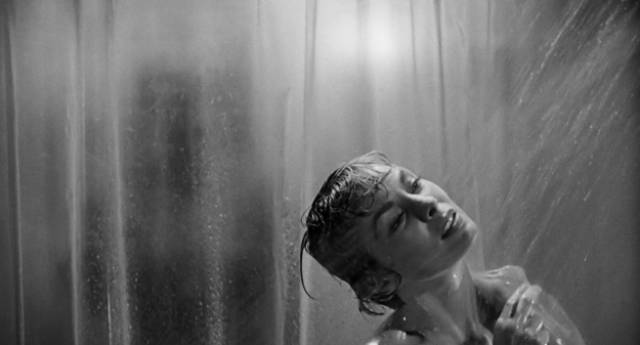
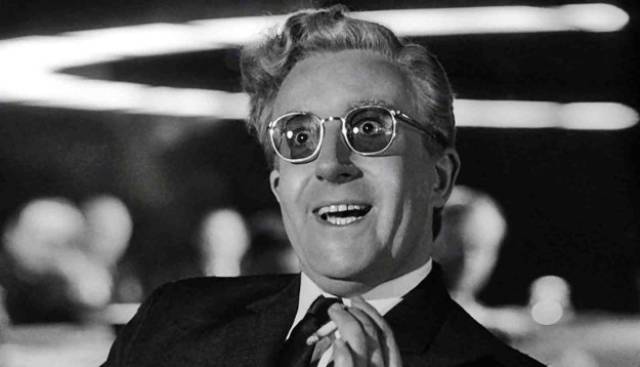
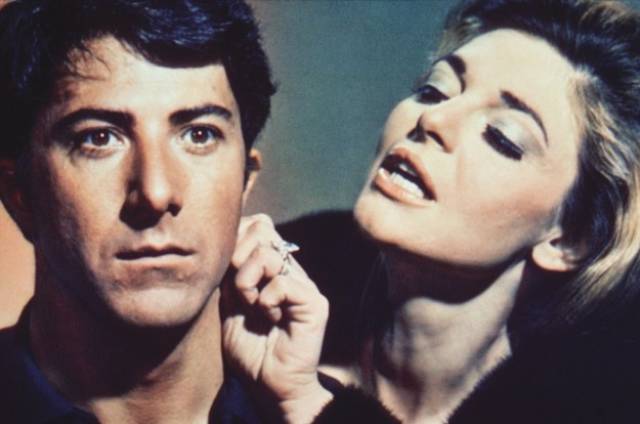
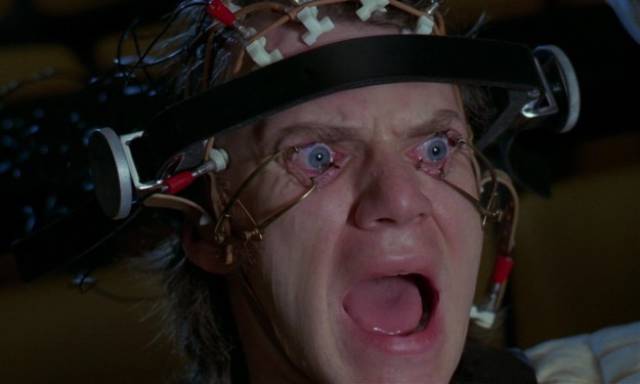
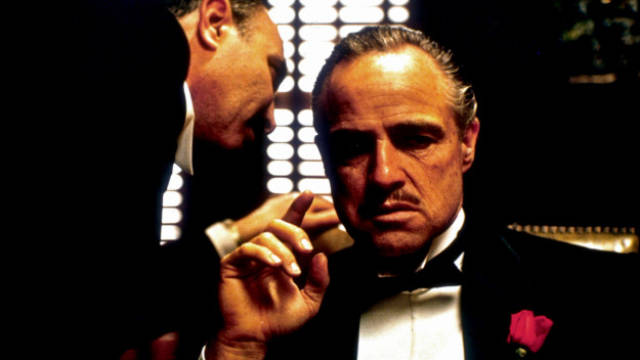
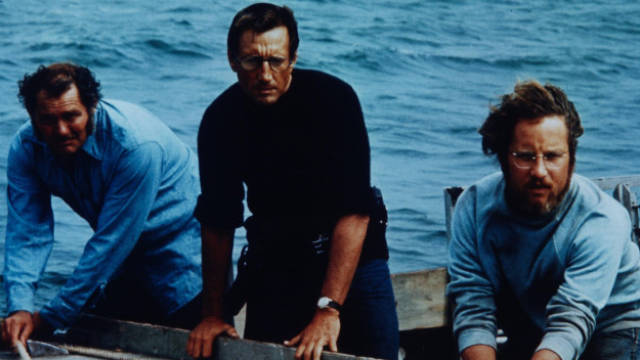
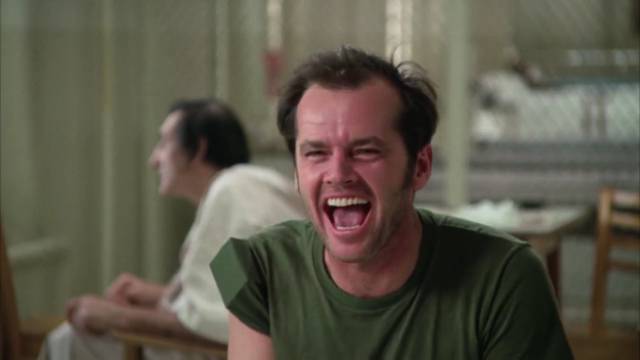
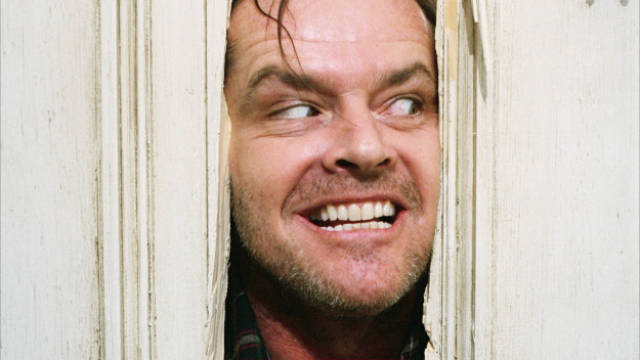
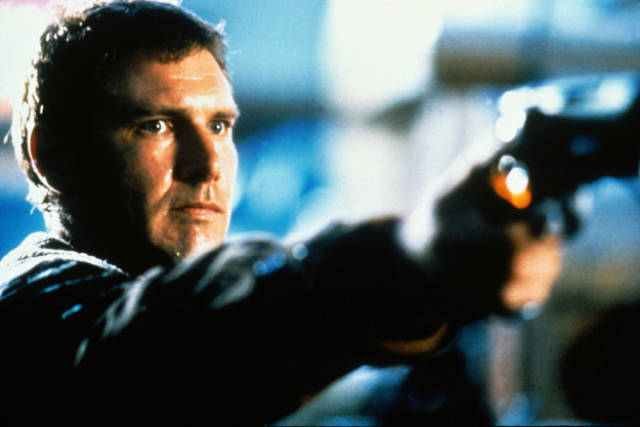
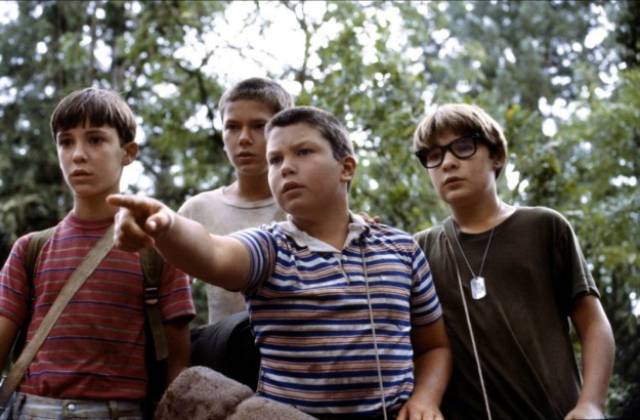
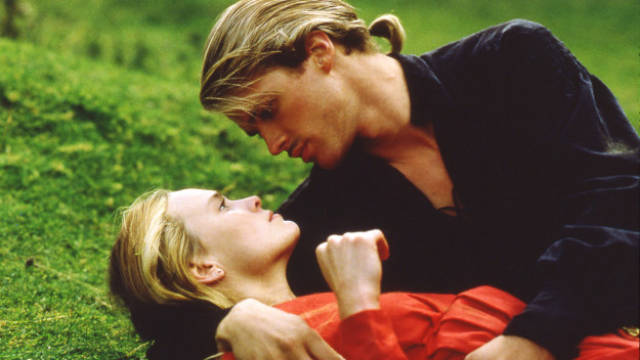
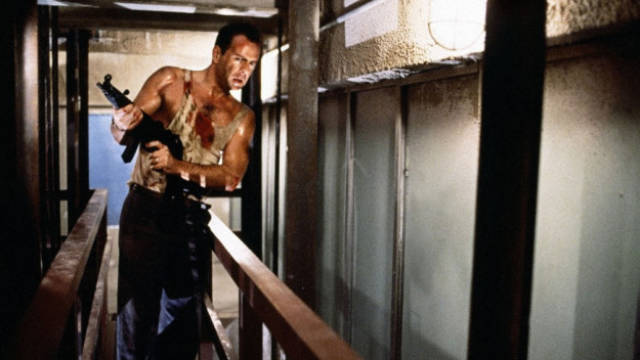
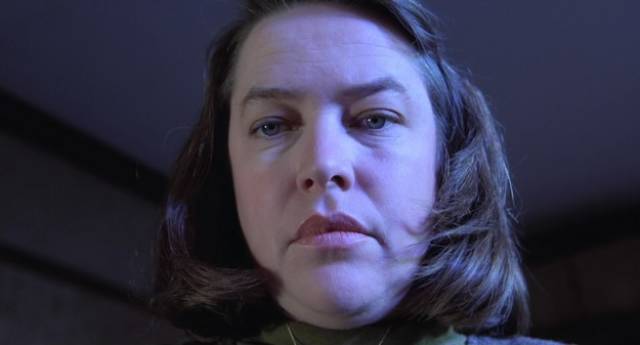
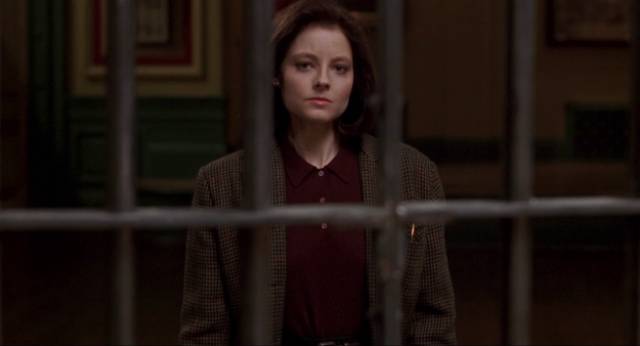
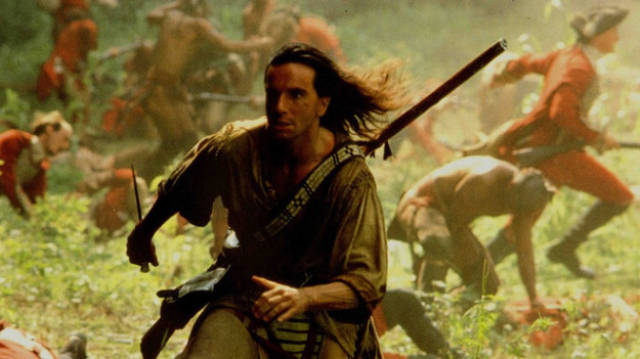
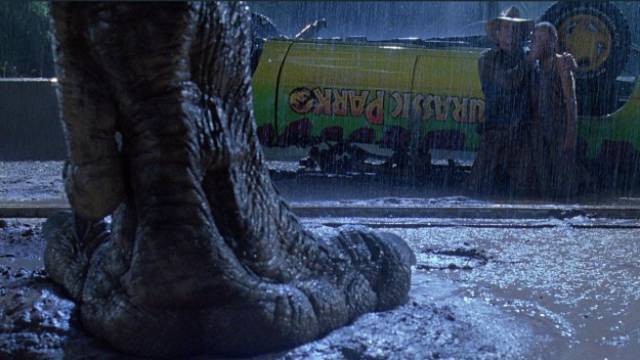
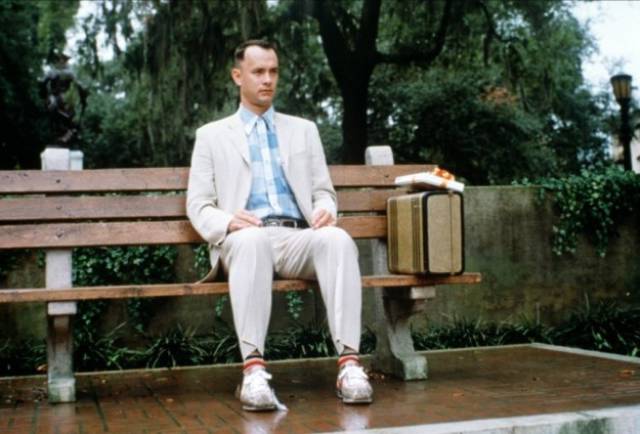
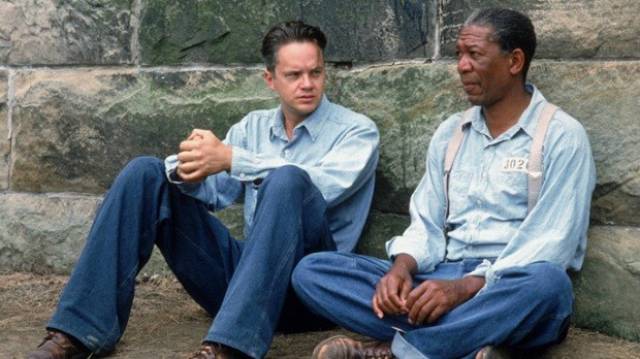
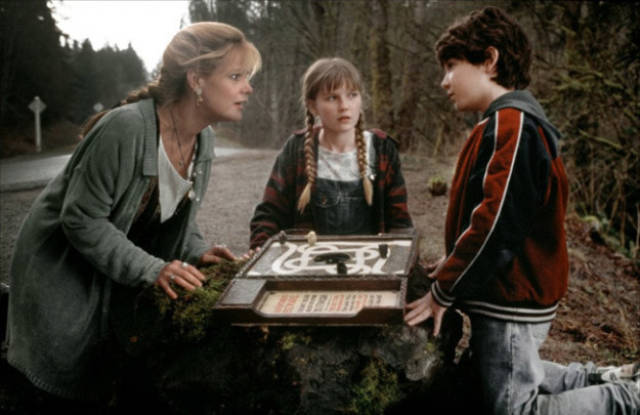
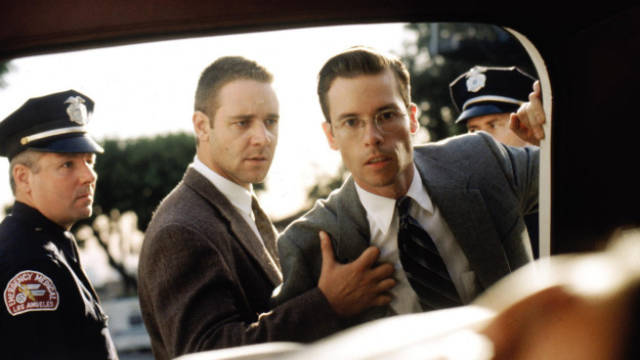
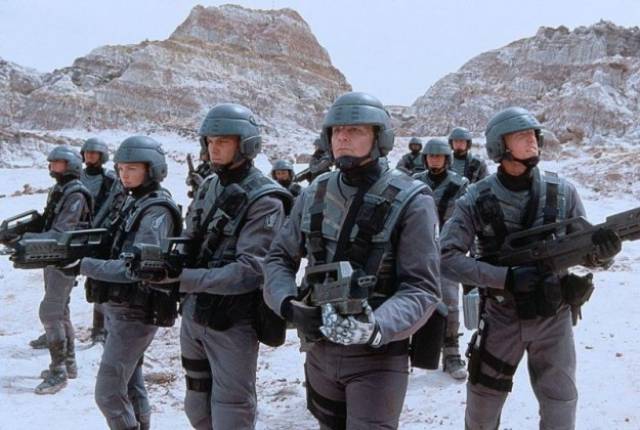
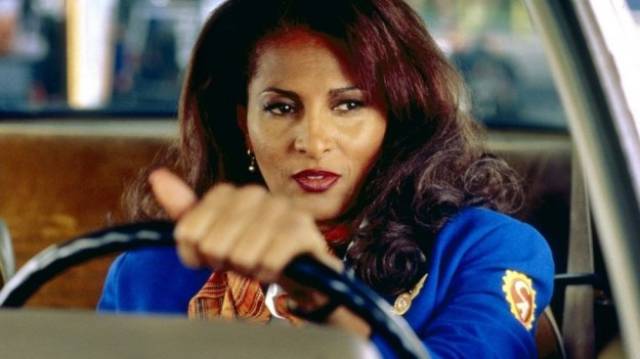
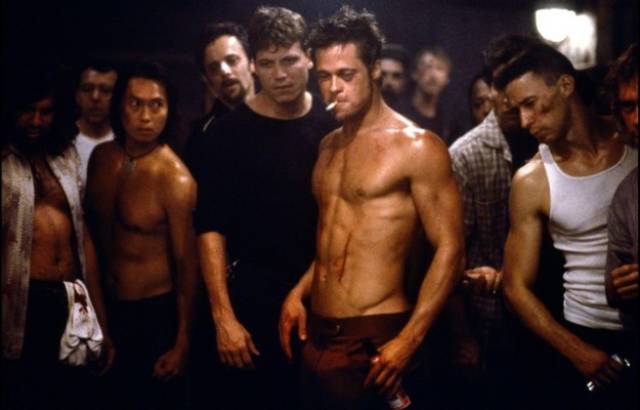
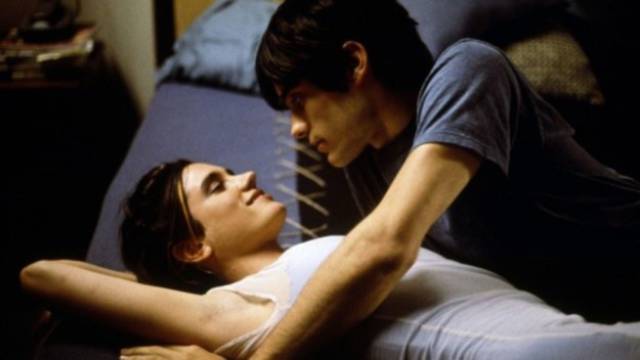
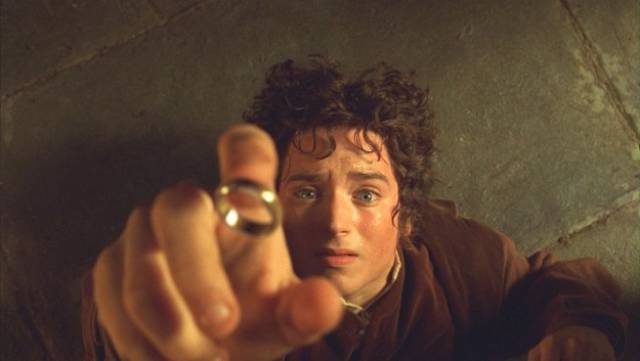
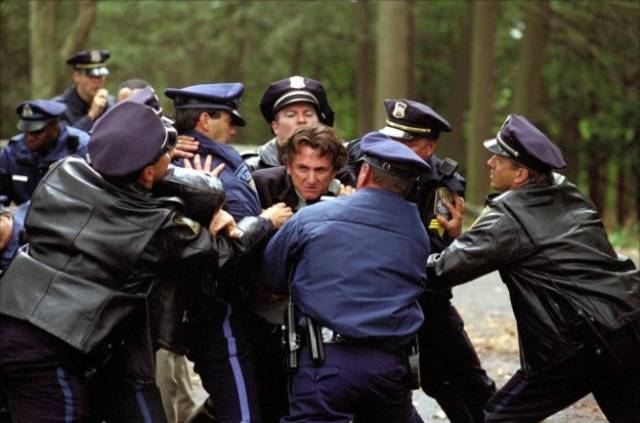
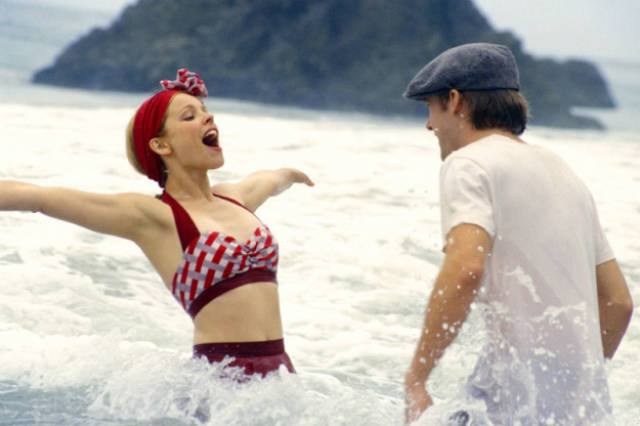
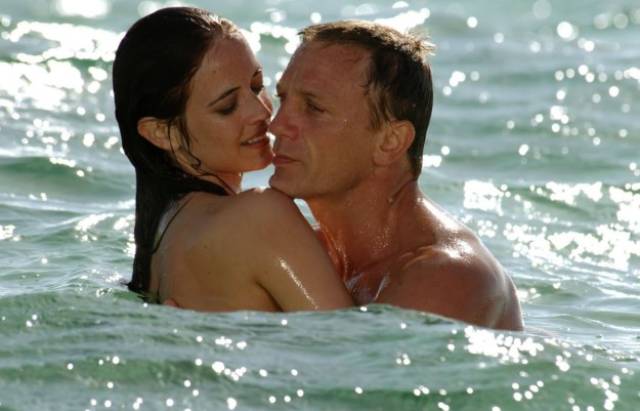
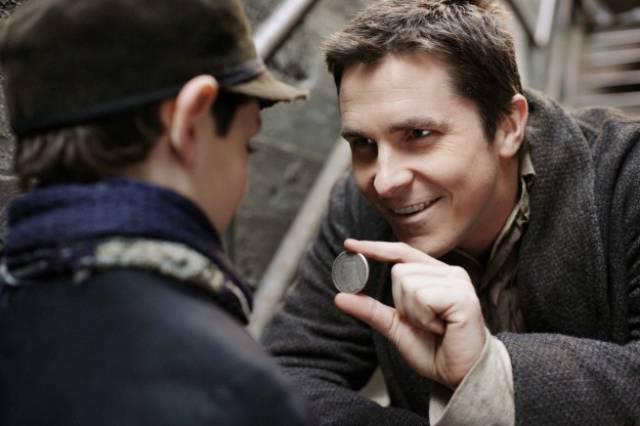
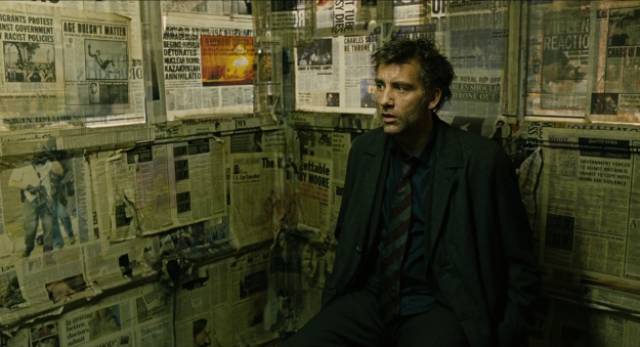
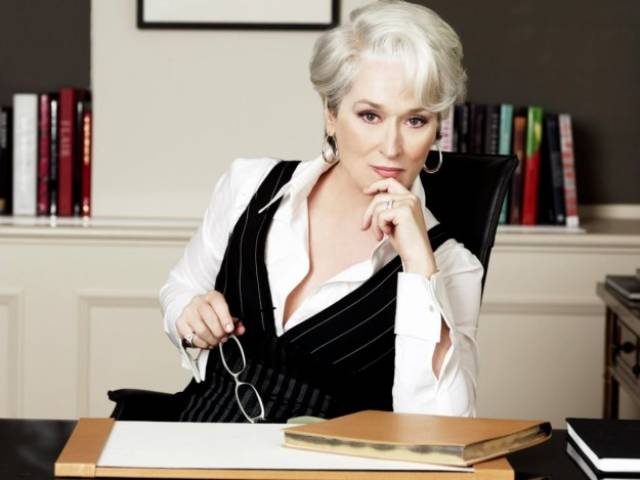
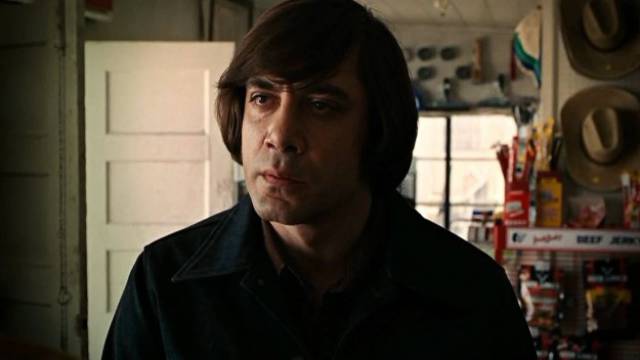
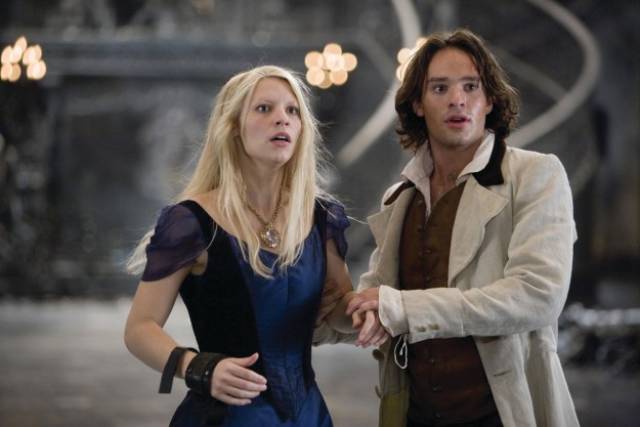
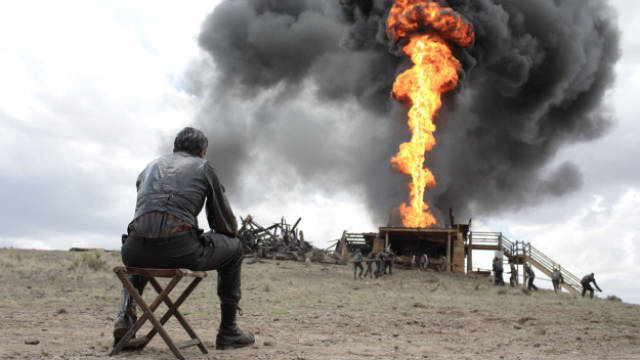
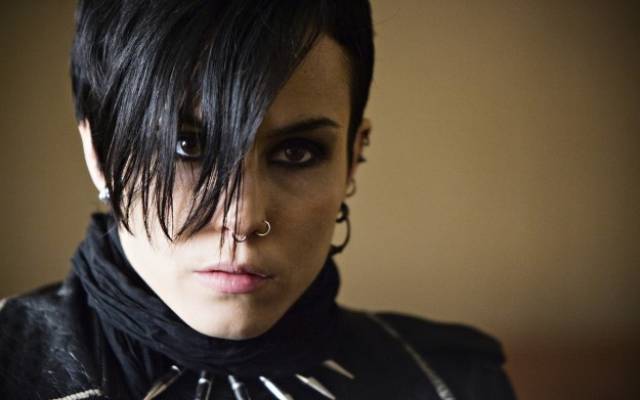
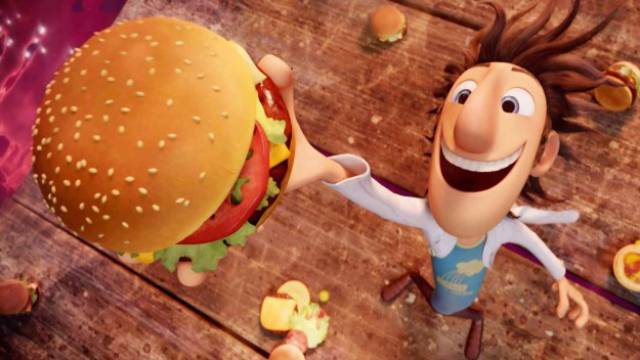
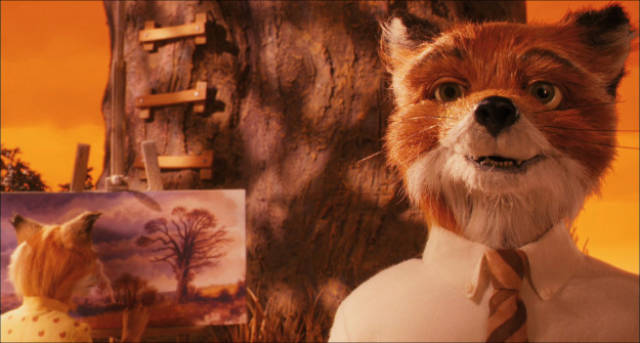
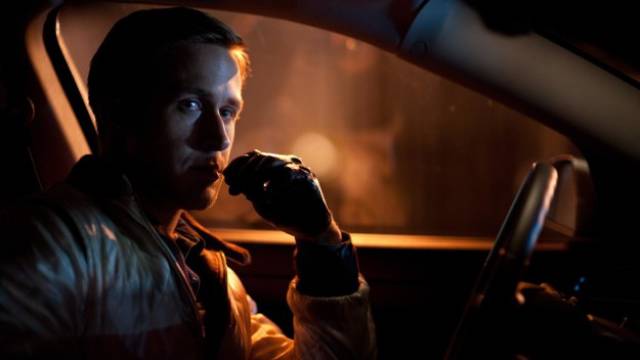
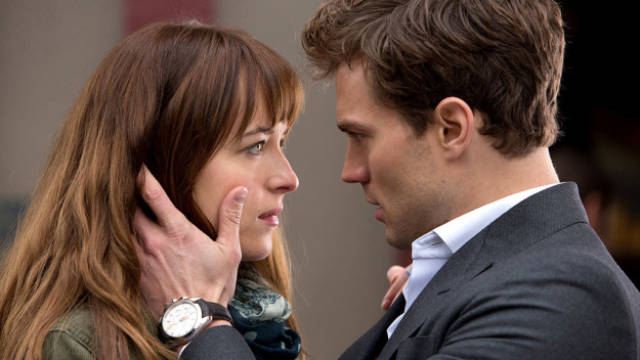

The movie sucked
#25... I don't think better as such, but more so, brilliantly capturing the true essence of the books, yet Mr Tom bombadil is much missed
The movies are weak on it's own, but they are crap adaptation. It's plastic-cheap game cutscene-level, which is way more obvoius when you (try to) watch The Hobbit.
Overall you have very little idea on what makes movie better than book. Cutting things and simplyfying plot does not make them better story teller.
About the other books and movies that I've read and watch:
Godfather:
Both movies are great on it's own but it does not make them better than books.
The Prestige:
The book seems to be good until finale which is crap.
Movies are typical Nolan-like pulp, he's crappy storyteller.
Jurassic Park.
Movie is great on it's own, but book is much wider and Spielberg have to cut good part of it to make reasonable size movie. Other plots were included in part III.
As for Starship Troopers (I didn't read the book) - the movie was dumb. Satiric tone was nicely made (as Verhoven did in Robocop), but the rest was huge pile of crap.